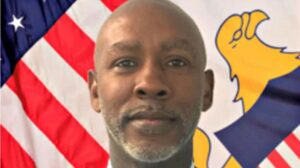Roger E. Merritt Jr. has spent nearly three decades building a career in environmental engineering and waste management.
He began with a civil engineering degree from Texas A&M University in 1995, later earning an Executive MBA in Finance from Clark Atlanta University in 2000. This mix of technical and financial skills helped shape his leadership style.
Mr. Merritt started in public service at Georgia’s Environmental Protection Division, where he gained experience in compliance and regulation. He moved to the private sector with Waste Management, Inc., managing Georgia’s largest landfill and leading major capital improvement projects such as the closure of Live Oak Landfill. His attention to detail and team coordination earned recognition.
He later served as Director of Landfill Engineering at EnviroSolutions, saving over $21 million through cost-effective design and smart planning. In 2011, he returned to public leadership as the Associate Director for Prince George’s County Resource and Recovery Division in Maryland. There, he managed a $100 million budget and streamlined operations to save taxpayers nearly $30 million.
Merritt also led the U.S. Virgin Islands Waste Management Authority through multiple natural disasters. His work included coordinating with FEMA and the EPA during hurricanes Irma and Maria.
Today, he is the CEO of REM Consulting in Atlanta. He advises governments and private clients on sustainable waste management practices across the U.S., Small Island Developing States, Latin America and the Caribbean. Merritt is also known for mentoring younger professionals and promoting sustainable infrastructure.
“I’ve learned that real impact comes from combining strong systems with real empathy,” he says. His work continues to influence how communities plan, recover, and build for the future.
Q: What first led you to study civil engineering and eventually work in waste management?
Roger Merritt: I’ve always been curious about how systems work—how things are built, maintained, and improved. That curiosity led me to study civil engineering at Texas A&M. Early on, I didn’t know I’d end up in waste management. But once I got into the field, I realized how vital it is—not just for infrastructure but for public health and the environment. It was more than just building things; it was about maintaining systems that impact real lives.
Q: After university, you began in public service. What did you take away from your time at Georgia’s Environmental Protection Division?
Roger Merritt: It was foundational. I worked on compliance and regulation, making sure operations met environmental standards. What stood out to me was how policy affects real people and the environment. Regulations aren’t just rules—they shape the safety and wellbeing of communities. That experience taught me to consider the bigger picture and to work with empathy, even when dealing with technical issues.
Q: You later moved to the private sector with Waste Management, Inc. What was that transition like?
Roger Merritt: It was a big shift. At Waste Management, I oversaw Georgia’s largest landfill in the City of Atlanta. I was responsible for everything—daily operations, landfill cell construction, financials, fleet, engineering and compliance. I managed a major project to close the landfill, which at the time was the largest in the state. That process was incredibly complex. It wasn’t just about putting a cap on it—it involved environmental safeguards, coordination with engineers and contractors, and communicating with the community. The success of that project really solidified my belief in collaborative leadership.
Q: You returned to school for an Executive MBA while already advancing in your career. What was behind that decision?
Roger Merritt: I’d been in the field long enough to know that technical skills alone weren’t enough. I needed a better grasp of the financial side of things. The Executive MBA at Clark Atlanta helped me understand budgets, procurement, and operational efficiency in a deeper way. I started seeing waste management through a broader lens—balancing cost, compliance, and community needs.
Q: What did your time at EnviroSolutions (ESI) teach you about leadership and innovation in waste operations?
Roger Merritt: At ESI, I was the Director of Landfill Engineering. We handled projects across several states, and I focused on streamlining operations and saving money through smarter design. I ended up saving the company over $21 million. The key was to look beyond the standard approach—every site has its own constraints and opportunities. You have to listen to your teams and look at problems from all angles. Innovation doesn’t always mean flashy tech—it’s often about making existing systems work better.
Q: You re-entered public service with Prince George’s County in Maryland. What was different about that role?
Roger Merritt: It was a larger scale. We were managing services for nearly a million people with a $100 million budget. I focused on cutting unnecessary consultant costs, strengthening environmental monitoring systems, and making sure the community got better service for their money. In total, we saved the county nearly $30 million. I’ve always believed public service should be efficient—taxpayer money should go as far as possible.
Q: You later led waste operations in the U.S. Virgin Islands. What was that experience like, especially during natural disasters?
Roger Merritt: That was some of the most intense work of my career. As Executive Director of the Virgin Islands Waste Management Authority, I was responsible for both the solid waste and wastewater systems. We faced hurricanes, flooding, and crumbling infrastructure. Communication became the most critical tool. We had to work with FEMA, the EPA, the US Army Corps of Engineers, and local partners to keep things running during emergencies. Those situations taught me that waste infrastructure is just as critical as power and water during a crisis.
Q: You now run your own consulting firm. What is the focus of your work today?
Roger Merritt: I oversee REM Consulting, based in Atlanta. I work with local governments, private firms, and international agencies. A lot of my current work is in Latin America and the Caribbean, particularly in Small Island Developing States. I help increase landfill airspace, review waste diversion programs, and disaster response strategies. Every community is different, so I focus on creating solutions that are sustainable, cost-effective, and tailored to local needs.
Q: You’ve also made mentorship a priority. Why is that important to you?
Roger Merritt: I’ve had great mentors throughout my career. They shaped how I think and how I lead. Now, I try to do the same for others—especially young professionals in this field. I tell them: don’t just learn the technical stuff. Learn how to lead, how to communicate, and how to see the human side of the work. Most people didn’t tell their teachers when they grew up they wanted to be pickup trash. We always have to remember that waste management is about people who are providing a much needed service to the community at the end of the day. If you forget that, you’ve missed the point.
Q: What advice would you give to someone entering the waste or environmental sector today?
Roger Merritt: Be curious. Ask how things work and why they work that way. Get comfortable with the details—whether it’s permits, operations, compliance, or public meetings with the community. And always remember that you’re in a service profession. Whether it’s hauling trash or designing a materials recovery facility, your work keeps communities safe and clean.
Read more:
Roger E. Merritt, Jr. Reflects on 30 Years in Waste Management
















